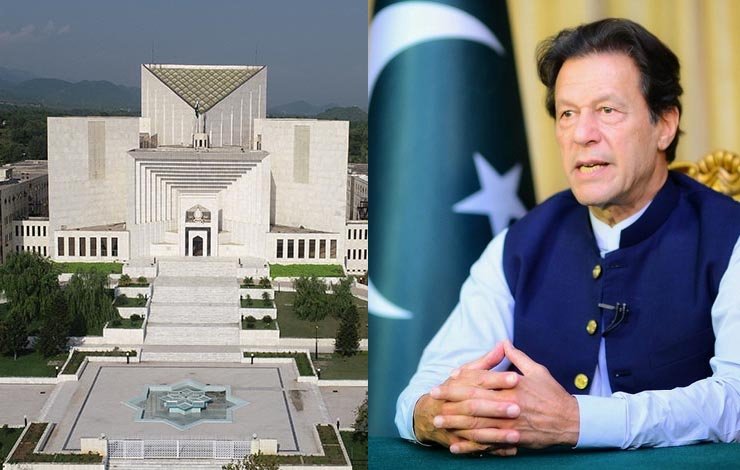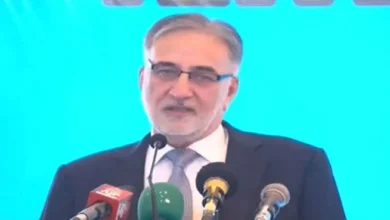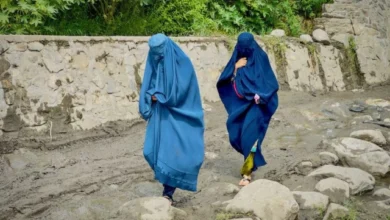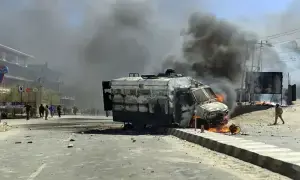Supreme Court says Islamabad court judgement against Imran Khan ‘flawed’

The Supreme Court of Pakistan has found ‘flaws’ in the Islamabad sessions court judgement against PTI Chief Imran Khan that led to his sentencing and imprisonment. However, it has decided against intervening immediately.
The top court heard a host of petitions filed by Imran Khan in the Toshakhana case on Wednesday. One of the pleas challenged the sessions court judgment and another called into question the decisions of the Islamabad High Court.
The Supreme Court on Wednesday allowed the Islamabad High Court to hear the appeal against the sessions court judgment and said if nothing happened on Tuesday in the high court, the Supreme Court would hand down a verdict at 1pm on the same day.
A three-member bench headed by Chief Justice of Pakistan Justice Umar Ata Bandial heard the petitions. Justice Mazahar Ali Naqvi and Justice Jamal Mandokhail are also on the bench.
CJP Bandial said that apparently there were ‘flaws’ in the August 5 judgment by Judge Humayun Dilawar, who found Imran Khan guilty of corrupt practices and sentenced him to three years in prison.
Khan was arrested shortly after the verdict was announced and has been held at the District Jail Attock since then.
Latif Khosa represented Imran Khan before the Supreme Court on Wednesday.
The Chief Justice remarked that ‘in hindsight, the trial court gave a decision in a single day which was not correct, there are flaws in the decision of the trial court, in hindsight. We are not interfering in this matter now. Let the High Court decide tomorrow. We will hear the case tomorrow.’
During the hearing, the Chief Justice got angry with the Election Commission’s lawyer.
The Chief Justice said that what opportunities of justice have been given to Chairman PTI?
After calling the case three times, the trial court sentenced the accused and sent him to jail, said CJP Bandial adding that the PTI chief was not heard.
He further said that it would be better for the High Court to decide first. ‘The High Court in its judgment of August 4 had sent a list of questions related to the Toshakhana case to the trial court. Did the trial court decide on the questions of the High Court? The petitioner’s case is that the Tosha Khana case was sent to the wrong court.’
Amjad Pervez, the lawyer of the Election Commission, said that the trial court had given the accused a chance three times before the verdict.
Justice Mazahar Ali Akbar Naqvi inquired how did the trial court decide the Toshakhana case without the right of defence? ‘In any court of the country, in a criminal case, the case is not decided without the right of defense to the accused.’
At one point, Justice Jamal Mandukhel remarked that “if the accused does not produce any witnesses himself, the court can summon the witnesses, the Chairman PTI was not given time to produce the witnesses.”
The lawyer of the Election Commission said that the trial court said the witnesses are irrelevant.
The case
The criminal proceedings against Imran Khan stemmed from a petition filed by the Election Commission of Pakistan under section 190(2) of the Election Act. It led to his sentencing.
Imran Khan was accused of selling state gifts on the market to make money. He was entitled to retain gifts from Toshakhana —a state repository where all the gifts received by government officials are deposited before they could take them home after completing the due process — but not to sell them on the market to make a profit, claims the Election Commission of Pakistan, which filed a petition against the former prime minister accusing him of “corrupt practice.”
The PTI says retaining state gifts or even selling them on the market was not a crime. It challenged the criminal proceedings against Khan before the high court.



